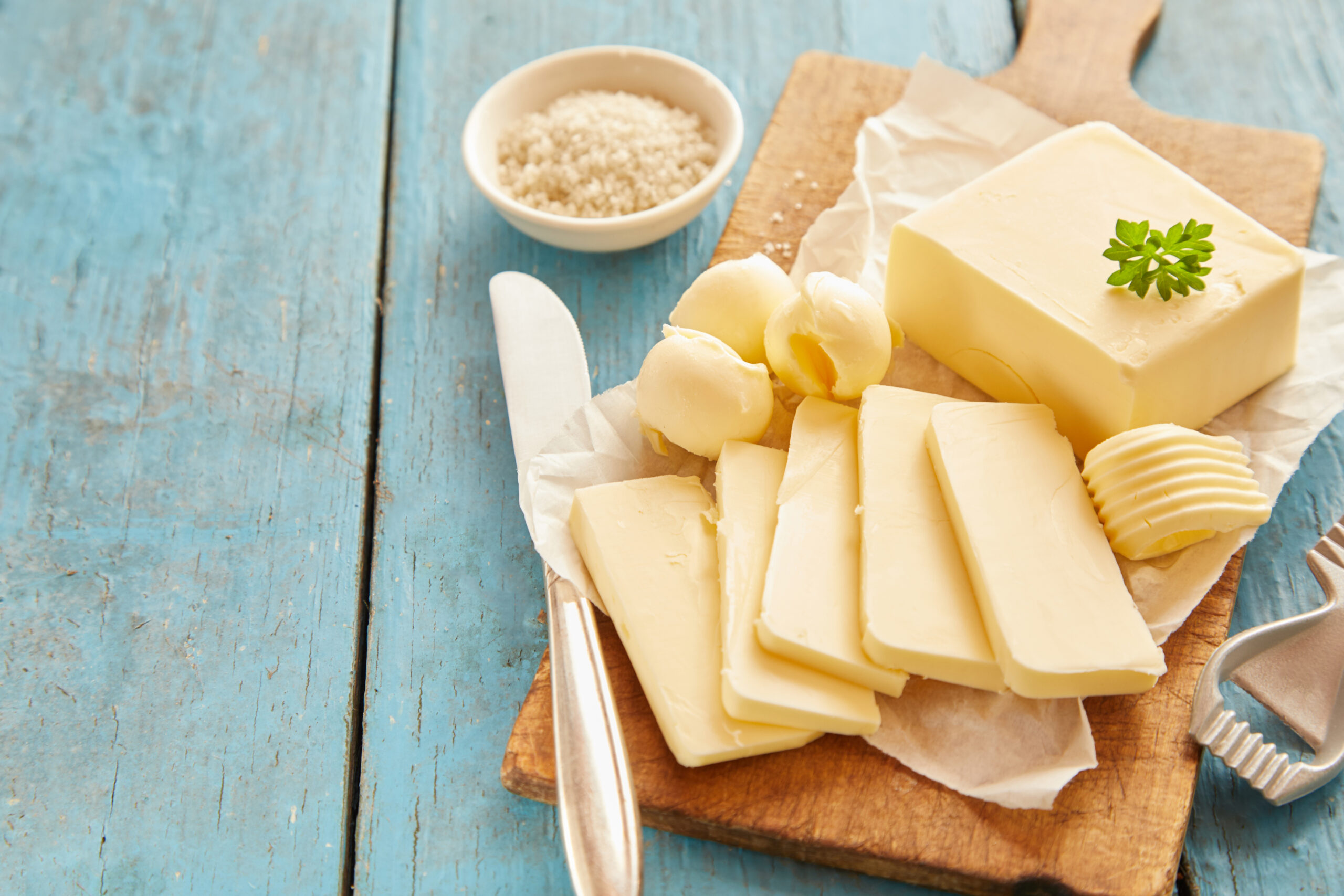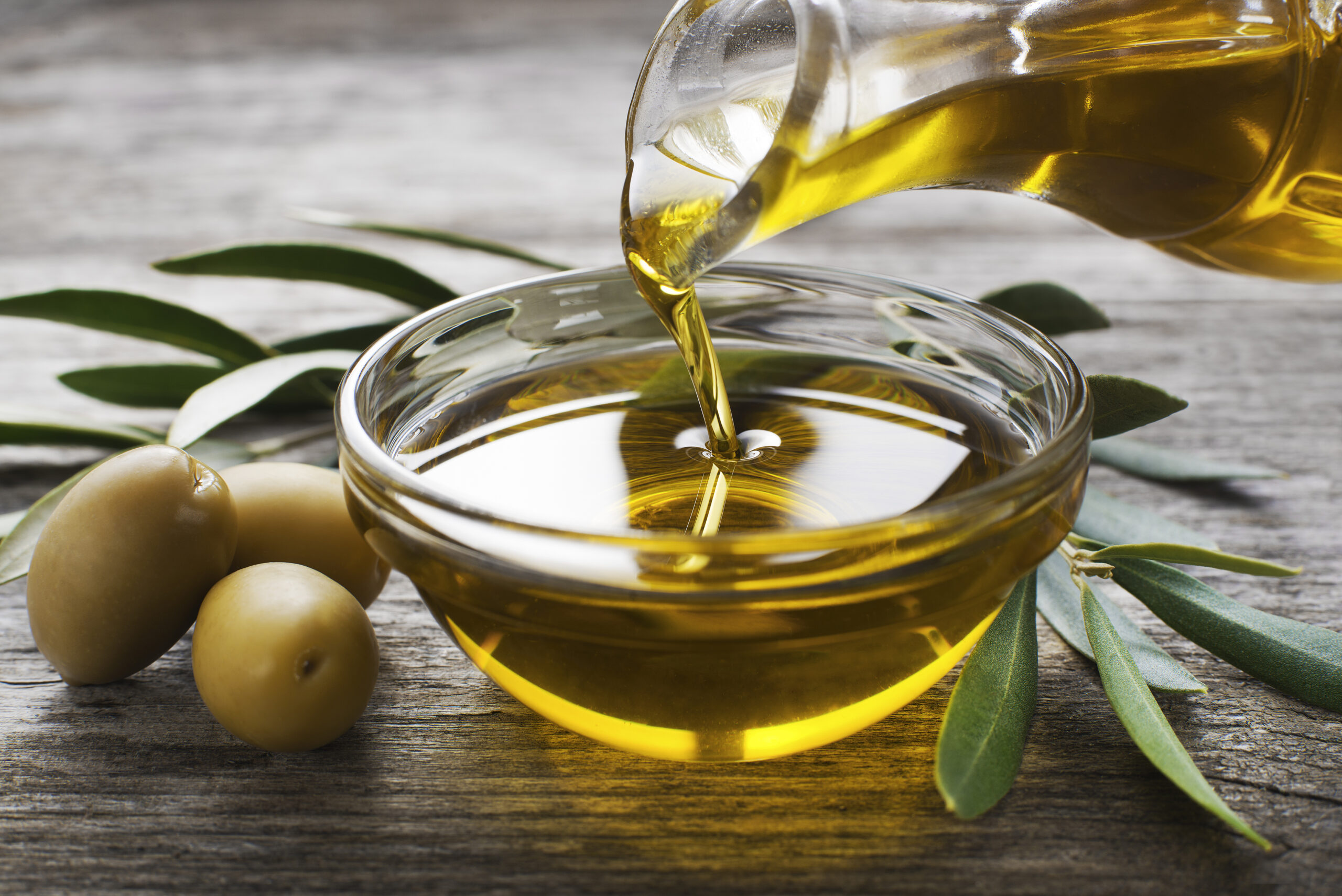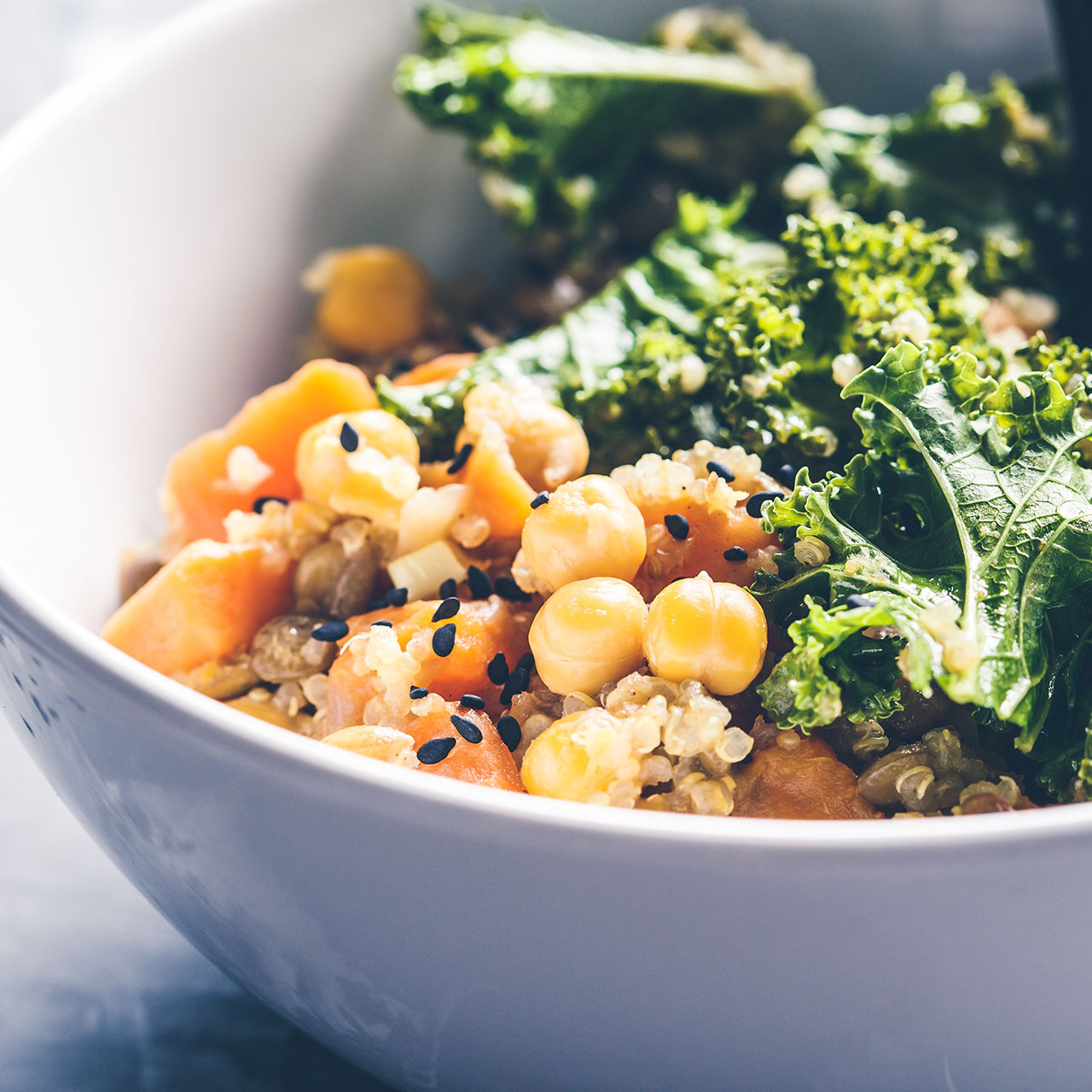This post has been updated since it was originally published on August 19, 2021.
We love butter—spread on toast, infused with herbs, poured over movie theater popcorn, and more. But, what exactly is its nutritional value? It’s no secret that butter has gotten a negative reputation over the years, especially for people who want to lose weight. However, is it as detrimental to your health as some experts say?


According to Dr. Daryl Gioffre, a certified nutritionist and bestselling author of Get Off Your Sugar, heavy dairy food items like butter are the culprit of many health issues. “Nearly all butter you find in the grocery store is made from cow’s milk. A significant issue with dairy is that over 65% of the population lacks the necessary enzymes that break down the lactose in dairy, and are lactose intolerant.”
Regularly consuming dairy is hard on the digestive system, and could affect other parts of your body as well. “The protein found in dairy is poorly digested and very damaging to the human immune system. Most dairy products including butter are made from milk of cows that feed on grains, and are loaded with pro-inflammatory omega-6 fatty acids and other acidic hormones.”
On top of that, butter doesn’t have many nutrient properties to begin with. “The milk that most butter is derived from is pasteurized and homogenized, and although this kills the bad bacteria, making it safe to drink, it has the unfortunate effect of losing most of the nutrients right along with it.”
Gioffre says it’s important to take into account that not all butters are created equal. If you enjoy eating butter and using it to cook, you should focus on avoiding additives and hormones as much as possible. “Organic grass-fed butter is the best you can choose from, having higher fat levels of soluble vitamins and better healthy fat balance. Grass-fed ghee is a great source as well, as all of the casein is removed, leaving just the butter fat that contains fat-soluble vitamins.”

Margarine
The worst type of butter for your long term wellbeing, Gioffre says, is often one that people mistakenly think is a healthier swap. “Many people thinking the saturated fats in butter are bad, will turn to margarine. Margarine is the worst of all butters and spreads, as it is highly processed and loaded with pro-inflammatory Omega-6 fats and trans fats, which is considered the worst type of fat you can eat.” Gioffre says, “Trans fats raise your 'bad' cholesterol but also lowers your 'good' cholesterol, ultimately stressing your cardiovascular system and increasing your overall risk for heart disease.”
Gioffre recommends that, if at all possible, you should eliminate butter from your diet altogether. “I suggest choosing other healthy fats first, such as coconut oil, coconut butter, or avocado oil.” Some oils may even be easier to cook with, “Coconut butter, along with avocado and coconut oil, hold a high smoke point and will not go rancid when used for cooking, making these oils a healthy alternative to butter.”
Although all studies say a little something different about whether or not butter is “healthy,” consuming it regularly, and in large amounts, probably isn’t the best choice for your digestive and cardiovascular health. While cooking your next meal, try swapping out dairy butter with your oil of choice. Of course, the key to a truly healthy life is enjoying everything in moderation. Just remember to eat wisely!


























